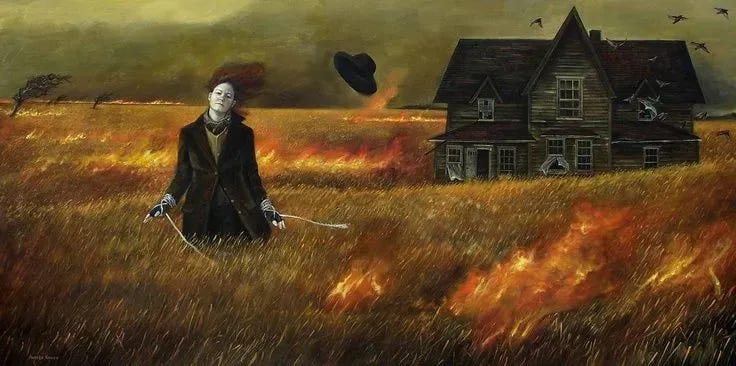Last week a section of the beloved Catskill mountains were aflame and I felt a sinking feeling as I realized that the climate driven havoc happening “over there” had breached my personal safety zone: the blaze was no longer at a distance, in another country, or on another coast: fire had come here. The continued danger of too much dryness coupled with gusting winds had my brow furrowed with worry for the creatures in these woods, creatures I know, from deer to owl, from fir to wren, from shrew to fisher. While chamomile loosened the clenching to a degree, the feeling of anxiety was not one I wanted to shed fully. It seemed right to feel the truth of how these devastations affect us all, and to call on larger beings to summon rain even as I flung out the strength of my will and gratitude to to the many firefighters bringing the flames to heel.
Perhaps not so strangely, the forest fire ignited the same week as another shocking turn of events in the U.S. that left many of us reeling, plummeting into heartbreak and fear of the future. I personally feel the urge to flee: to shoulder a backpack and disappear into thick woods; to walk, and to not stop walking. To disappear into the wild, where I feel more at home surrounded by my bark-flecked kin than I do in human “civilization.”
It is on days like these that poems are a source of centering, and lucky for me, a special haiku landed in my inbox in the midst of all this destabilization. A small jewel, written in late November of 1694 by the poet Bashō, who apparently composed it as he lay in a rented room above a flower shop in Osaka, dying.




